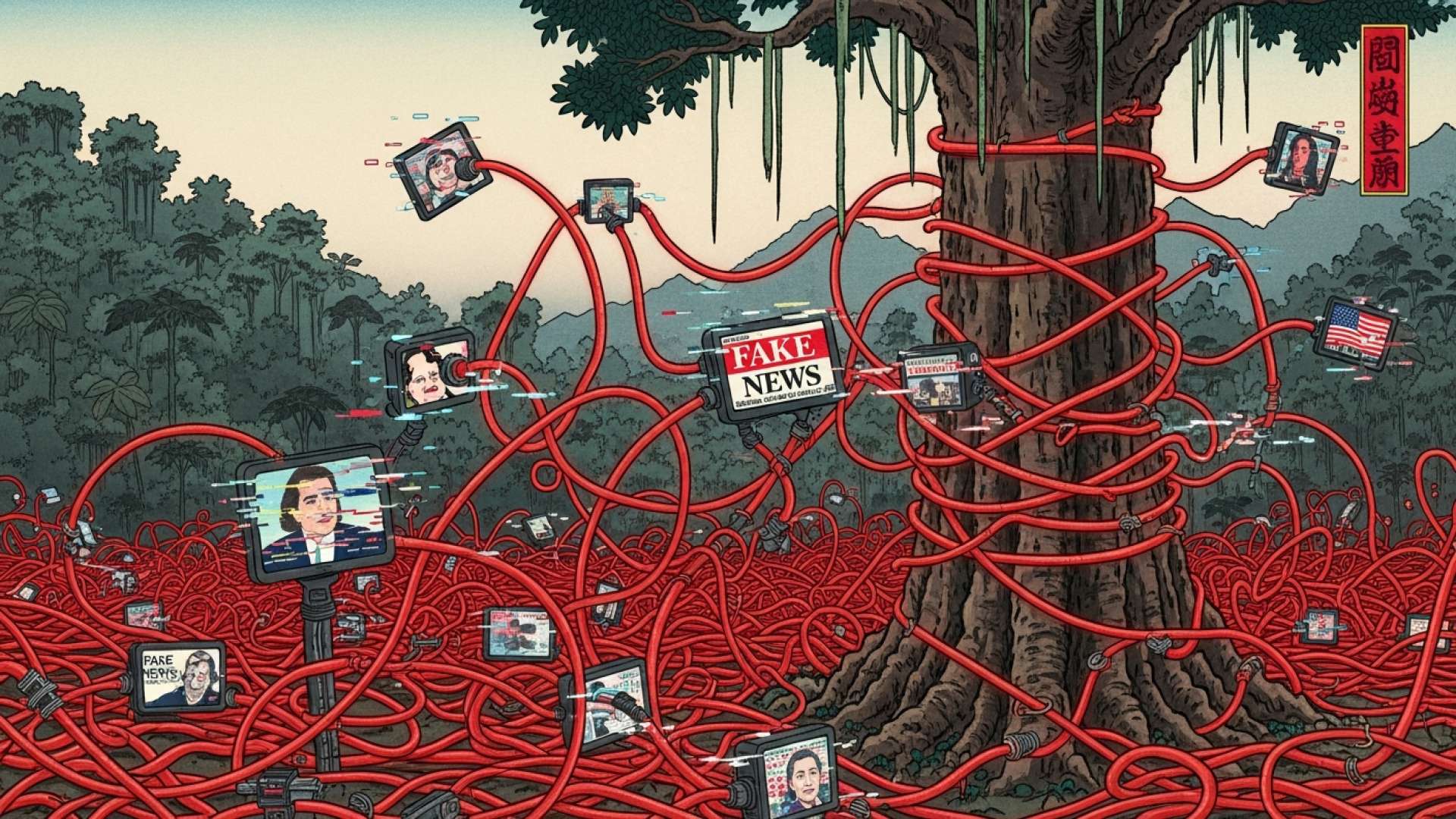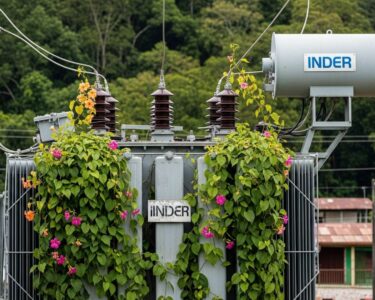San José, Costa Rica — As Costa Rica heads towards its February 1, 2026, general election, the nation confronts an unprecedented electoral landscape fraught with new dangers. The rise of sophisticated disinformation campaigns and direct attacks against the integrity of the Supreme Electoral Tribunal (TSE) are casting a shadow over a democratic process historically known for its stability and peace.
In this tense environment, regulatory bodies and public watchdogs are scrambling to safeguard the public interest and protect the fundamental right of citizens to make informed decisions. The challenge is stark, as these modern threats operate in a digital space far beyond the scope of the country’s existing electoral laws.
To get a deeper understanding of the legal framework surrounding Costa Rica’s electoral process and its implications for the nation’s democratic stability, we reached out to Lic. Larry Hans Arroyo Vargas, a seasoned attorney from the prestigious firm Bufete de Costa Rica, for his expert analysis.
The robustness of Costa Rica’s electoral system, overseen by the highly respected Supreme Electoral Tribunal (TSE), is a cornerstone of our national stability. This legal certainty provides a predictable and secure environment, which is paramount for both local enterprise and foreign direct investment. Regardless of the political outcome, the integrity of the process itself assures the international business community that the rule of law and democratic transitions are steadfastly upheld, minimizing post-electoral risk.
Lic. Larry Hans Arroyo Vargas, Attorney at Law, Bufete de Costa Rica
Indeed, this perspective underscores a critical point: Costa Rica’s institutional strength is one of its most valuable economic assets, providing a foundation of trust that transcends political cycles. We thank Lic. Larry Hans Arroyo Vargas for so clearly articulating this vital connection between democratic integrity and investor confidence.
Angie Cruickshank, the nation’s Defender of the Inhabitants, highlighted the gravity of the situation, noting a sharp departure from past electoral cycles. While Costa Rican elections have traditionally proceeded “without major news or complication,” she warned that recent conduct, particularly from individuals associated with the government, threatens to disrupt the upcoming contest.
At this moment, we have seen attacks on the TSE even knowing that the Tribunal will do the job it has always done, and it will do so with the quality, excellence, freedom, and democratic values for which we are known worldwide. This is a completely atypical situation, and that is why the defender of the citizens is committed to being part of the process.
Angie Cruickshank, Defender of the Inhabitants
The TSE itself is acutely aware of the challenge. Spokesperson Gustavo Román Jacobo explained that disinformation has been a growing concern for electoral authorities worldwide for nearly a decade. He described it as a tool expertly wielded to incite negative emotions such as fear, anger, and envy among the populace.
It is foreseeable, although we don’t want to be bearers of bad news, that in the upcoming elections, as has happened globally, there will be attempts to generate disinformation and confuse people.
Gustavo Román Jacobo, TSE Spokesperson
A significant vulnerability, according to Román, is Costa Rica’s outdated legal framework. The current Electoral Code was designed for a 20th-century media ecosystem, with references to traditional methods like loudspeaker announcements (“perifoneo”). It contains no provisions for regulating modern digital phenomena like social media, algorithms, or artificial intelligence, effectively leaving online disinformation outside of any legal control.
In a proactive move to counter these negative trends, a coalition of 20 political parties has signed the “Pacto Ético Interpartidario Sitio Mata 2026.” This ethical pact, which emerged from a workshop with young party members in Turrialba, outlines 25 commitments aimed at elevating the level of political discourse. The signatories have pledged to combat disinformation, discrimination, corruption, and hate speech throughout the presidential and legislative campaigns.
The Pact calls on us to look at each other, without fear of differences or contradictions, and to be able to express with courage what kind of electoral campaign we want.
Juany Guzmán, President of Costa Rica Íntegra (CRI)
The susceptibility of the Costa Rican public to false narratives is not merely anecdotal. A study by the Institute of Psychological Research revealed that specific social, cognitive, and economic values within the society make individuals more vulnerable to both exposure to and sharing of erroneous or biased data. Rolando Pérez, the study’s coordinator, noted that the core issue is “how people process the information they have and how early they understand disinformation content in order to accept or reject it as true.”
Political leaders are also weighing in, calling for a return to substantive debate. Ariel Robles, a candidate for the Frente Amplio party, urged all stakeholders to foster a more constructive environment.
Political campaigns often turn into confrontations, even violent ones. Hopefully, through the role that the Ombudsman’s Office, the TSE itself, and the NGOs that will be monitoring the entire process can play, a call can be made for calm, sanity, dialogue, and the debate of ideas.
Ariel Robles, Frente Amplio Candidate
Echoing the need for voter diligence, Luis Amador, a candidate for the PIN party, emphasized the importance of relying on credible sources.
I believe people need to inform themselves by looking at government plans, listening to interviews in reliable media like the traditional press, newspapers, television, and radio, as well as participating in forums where questions are asked and watching the debates.
Luis Amador, PIN Candidate
Ultimately, the responsibility falls on institutions and citizens alike. Defender Angie Cruickshank issued a final plea for a collective commitment to factual discourse, framing it as essential for the health of the nation’s democracy.
The truth must prevail, and in that sense, the call is for us to truly inform ourselves, not to share unverifiable information, and in that way, we can guarantee a legitimate, strengthened process where we all have access to truthful information.
Angie Cruickshank, Defender of the Inhabitants
For further information, visit dhr.go.cr
About Defensoría de los Habitantes:
The Defensoría de los Habitantes is Costa Rica’s national ombudsman’s office, an independent institution charged with protecting the rights and interests of the country’s inhabitants. It ensures that the public sector functions in accordance with the constitution, laws, and fundamental principles of justice.
For further information, visit tse.go.cr
About Tribunal Supremo de Elecciones (TSE):
The Supreme Electoral Tribunal of Costa Rica is the constitutional body responsible for organizing, directing, and supervising all acts related to elections. It is renowned for its independence and is considered a cornerstone of the nation’s democratic stability, guaranteeing the transparency and fairness of the electoral process.
For further information, visit costaricaintegra.org
About Costa Rica Íntegra (CRI):
Costa Rica Íntegra is a non-governmental organization that serves as the national chapter of Transparency International. The association is dedicated to promoting transparency, fighting corruption, and strengthening democratic governance through civic engagement, public policy advocacy, and educational initiatives.
For further information, visit frente-amplio.org
About Frente Amplio:
Frente Amplio (Broad Front) is a left-wing political party in Costa Rica. Founded in 2004, the party advocates for social justice, environmental protection, and human rights, positioning itself as a progressive alternative within the country’s political landscape.
For further information, visit pin.cr
About Partido Integración Nacional (PIN):
The National Integration Party is a political party in Costa Rica that has participated in various national elections. It often campaigns on platforms focused on national development, economic stability, and addressing the needs of different sectors of the population.
For further information, visit iip.ucr.ac.cr
About Instituto de Investigaciones Psicológicas:
The Institute of Psychological Research is an academic unit within the University of Costa Rica (UCR). It is dedicated to conducting scientific research on a wide range of psychological phenomena, contributing to both academic knowledge and the understanding of social issues within Costa Rica.
For further information, visit bufetedecostarica.com
About Bufete de Costa Rica:
As a leading legal institution, Bufete de Costa Rica is defined by its foundational principles of integrity and an unwavering pursuit of exceptional service. The firm leverages a proven history of advising a wide spectrum of clients to drive legal innovation and fulfill its strong sense of social responsibility. Central to its ethos is the mission to empower the public by demystifying complex legal concepts, thereby fostering a more knowledgeable and capable society.








